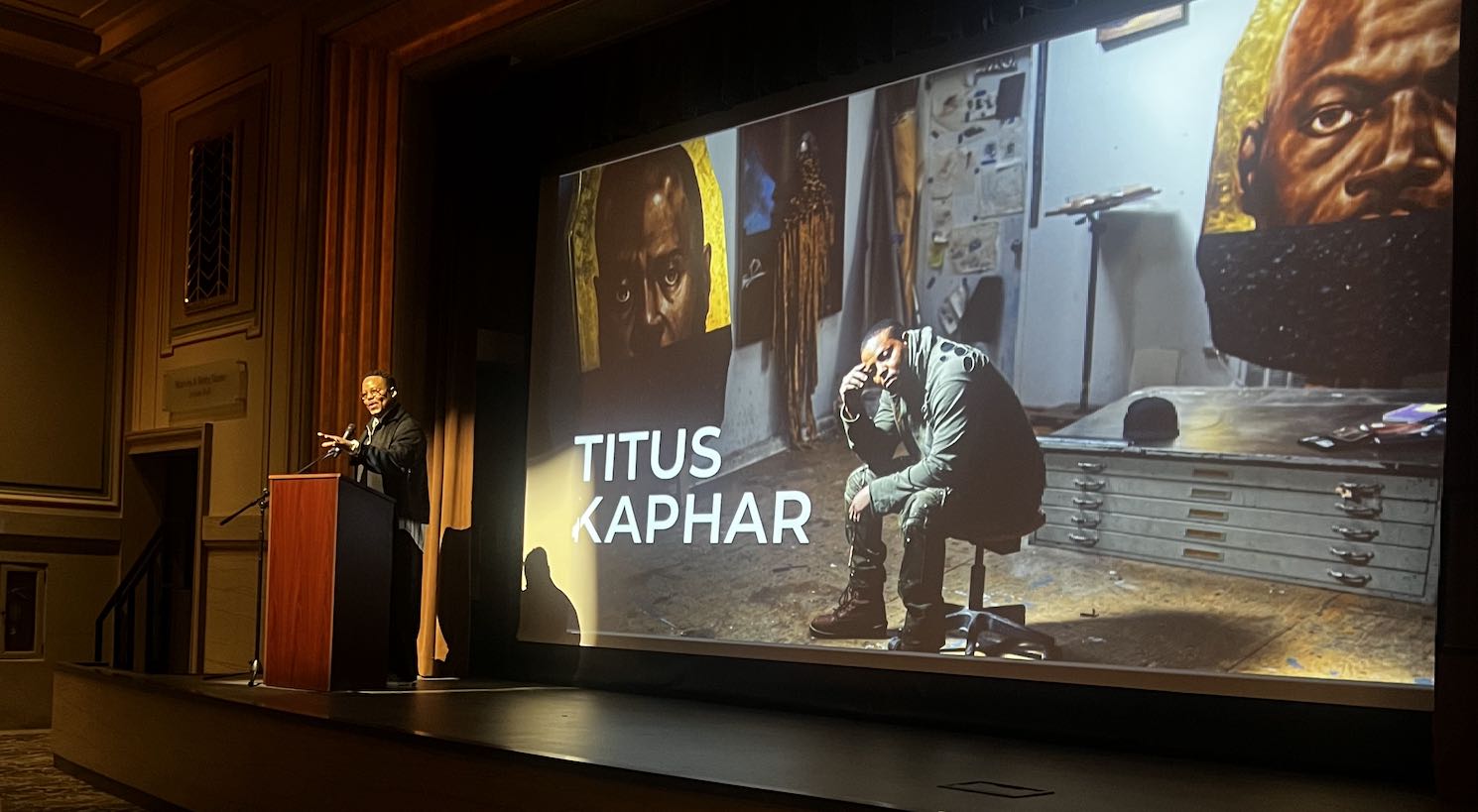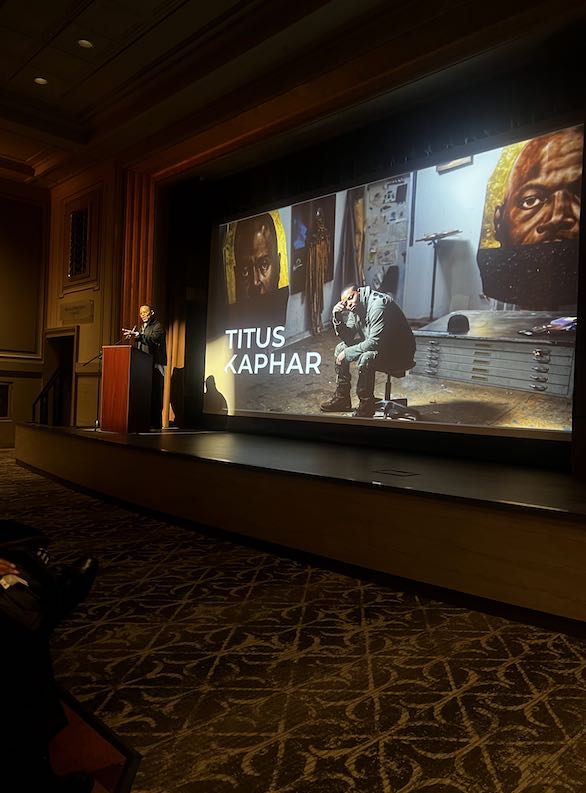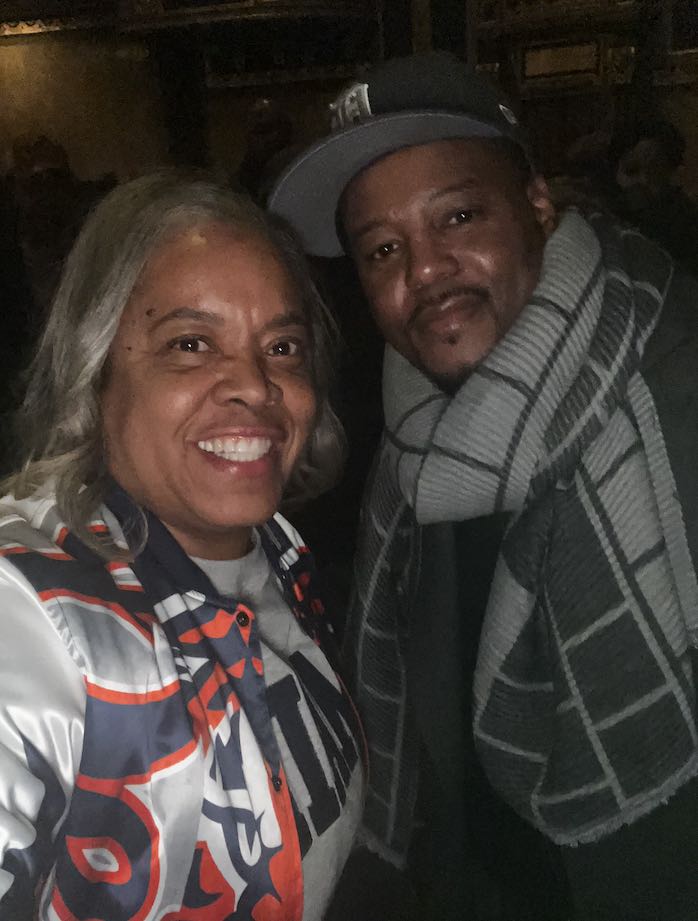Titus Kaphar’s directorial debut, “Exhibiting Forgiveness,” is a cultural intervention disguised as a film. A meditation on trauma, memory and the radical potential of art, it’s deeply personal and achingly relevant.
For those navigating intergenerational trauma or diasporic identity, this film affirms that healing isn’t always about returning — it’s about reimagining.
Screened at the Detroit Institute of Arts (DIA) in Michigan, U.S.A., the film left a visceral impact on audiences, including Valerie Mercer, DIA’s Curator of African American Art, who reflected on the emotional weight of its themes.
The film centers on a fictionalized version of Kaphar — a successful Black artist reckoning with the generational pain left by his father. Told through an emotionally rich and visually layered lens, the story weaves together themes of addiction, forgiveness and the fragile ties between Black fathers and sons.
Yet it also touches something larger: the ongoing process of reclaiming agency, rewriting narratives and healing in a world that often denies the space for Black vulnerability.
That space didn’t always exist for Kaphar either. At the Friends of African and African American Art’s (FAAAA) Alain Locke Awards in February, he shared candidly: “We start at ground zero.”
Kaphar spoke of struggling in school, carrying a .065 GPA and failing through systems that couldn’t see him — systems that weren’t designed to. It was in art history where he finally found a foothold: just 14 pages in a 200+ page textbook featured artists who looked like him.
From those 14 pages, Kaphar built a practice, a perspective and eventually an entire world.
“It started as an act of resistance,” he says.
Art allows us the space to imagine what does not exist yet.
Kaphar’s visual intelligence — something traditional education systems couldn’t measure — became his greatest asset.
“Success breeds success,” he tells the audience, a reflection not only on his journey but on the broader power of representation.
Once Kaphar saw himself — once he saw progress — he couldn’t unsee it. He had to keep going.
UNTIDY HEALING
“Exhibiting Forgiveness” reflects that resistance and that vision: The film doesn’t offer tidy resolutions, because healing isn’t tidy. Instead, it creates space for unresolved grief, for fractured family and for the kind of forgiveness that doesn’t demand reconciliation. It asks: What does it mean to forgive for yourself? To create for survival? To heal without permission?
It’s personal. Kaphar created this work, in part, for his mother — a woman raising four sons, all of whom have had run-ins with the police. It’s personal in the way the artist’s brush strokes become acts of protest.
It’s personal in how trauma is excavated and transformed. It’s personal in how Kaphar’s art is not just about identity, but about navigating the borders between culture, class and belonging.
As someone who was raised in “Black” Kalamazoo, Michigan, U.S.A., educated in “white” northern California, and now resides in “white” Connecticut, Kaphar constantly straddles worlds. That cultural duality is not background — it is the art.
In one pivotal scene, the protagonist affirms, “Art is essential.”
That declaration echoes Kaphar’s belief that “art allows us the space to imagine what does not exist yet.”
In a world shaped by inherited narratives, he offers a counter-narrative: one built from the ground up, one where visual storytelling becomes a survival strategy.
Kaphar has never been content to “shut up and paint,” as a European gallerist once told him. In fact, he sees silence as complicity.
“Colonialism isn’t dead,” he reminded attendees at the Alain Locke Awards, “it’s changed, but it’s not dead.”
Through his art, and now film, Kaphar insists on talking about what is too often left unsaid — addiction, abandonment, love and longing.
His latest effort through NXTHVN, the arts incubator he co-founded in New Haven, Conn., U.S.A. is a manifestation of his belief in self-determined legacy. “
Colonialism isn’t dead. It’s changed, but it’s not dead.
What will you do with your money?” his mother once asked him. Kaphar answered by creating an institution that mentors the next generation of artists — those who, like him, are visually intelligent and culturally rich but often left outside institutional gates.
“Exhibiting Forgiveness” isn’t a final word — it’s an opening. It reflects a nonlinear, sometimes contradictory path toward self-definition. It is about the stories we inherit, the ones we rewrite, and the ones we pass on, especially for those navigating diasporic identity.
This film affirms that healing isn’t always about returning — it’s about reimagining.
As Kaphar continues to figure out who he is through his art, he invites us to do the same. In his words and in his work, he reminds us that the most powerful art doesn’t just reflect the world — it reconstructs it.Exhibiting Forgiveness is available for streaming on Hulu.


















